- Home
- Aharon Appelfeld
Tzili Page 2
Tzili Read online
Page 2
A number of years before, Tzili’s older brother had gotten one of Maria’s daughters into trouble. Maria herself had appeared in the shop and created a scene. For days, the family had consulted in whispers, and in the end they had been obliged to hand over a tidy sum. The mother, worn out with work, had refused to forgive her son. She found frequent occasions to refer to his crime. Tzili had not, of course, grasped the details of the affair, but she sensed that it was something dark and sordid, not to be spoken of directly. Later on, their mother forgave her brother, because he began to study and also to excel.
“Sit down,” said the blind man. “What’s your hurry?”
She approached and seated herself wordlessly by his side. She was used to the blind. They would congregate outside the shop and sit there for hours at a time. Every now and then her mother would emerge and offer them a loaf of bread, and they would munch it noisily. Mostly they would sit in silence, but sometimes they would grow irritable and begin to quarrel. Her father would go out to restore order. Tzili would sit and watch them for hours. Their mute, upraised faces reminded her of people praying.
The blind man seemed to rouse himself. He groped for his satchel, took out a pear and said: “Here, take it.”
Tzili took it and immediately sank her teeth into the fruit.
“I have some smoked meat too—will you have some?”
“I will.”
He held the thick sandwich out in his big hand. Tzili looked at the big pale hand and took the sandwich. “Maria’s daughters are all good-looking girls,” he said and snickered. Now that he had straightened the upper half of his body he looked very strong. Even his white hands. “I don’t like eating alone. Eating alone depresses me,” he confessed. He chewed calmly and carefully, as blind men will, as if they were suspicious even of the food they put in their mouths.
As he ate he said: “They’re killing the Jews. The pests. Let them go to America.” But he didn’t seem particularly concerned. He was more concerned with the coming harvest.
“Why are you so silent?” he said suddenly.
“What’s there to say?”
“Maria’s daughters are a cunning lot.”
Tzili did not yet know that the notorious name of Maria would be her shield from danger. All her senses were concentrated on the thick sandwich the blind man had given her.
Once Maria had been a customer at the shop. She was a handsome, well-dressed woman and she used city words. They said that Maria had a soft spot for Jews, which did not add to her reputation. Her daughters too had inherited this fondness. And when the Jewish vacationers appeared, Maria would have a taste of what it meant to be indulged.
Tzili now remembered nothing but the heavy scent Maria left behind her in the shop. She liked breathing in this scent.
The blind man said casually: “Maria’s daughters love the Jews, may God forgive them.” And he snickered to himself again. Then he sat there quietly, as if he were a cow chewing the cud.
Now there was no sound but for the birds and the rustling of the leaves, and they too seemed muted. The blind man abandoned his full face to the sun and seemed about to fall asleep.
Suddenly he asked: “Is there anyone in the field?”
“No.”
“And where did you come from?” The full face smiled.
“From the village square.”
“And there’s no one in the field?” he asked again, as if he wanted to hear the sound of his own voice.
“No one.”
Upon hearing Tzili’s reply he reached out and put his hand on her shoulder. Tzili’s shoulder slumped under the weight of his hand.
“Why are you so skinny?” said the blind man, apparently encountering her narrow shoulder bones. “How old are you?”
“Thirteen.”
“And so skinny.” He clutched her with his other hand, too, the one he had been leaning on.
Tzili’s body recoiled from the violence of the peasant’s embrace, and he threw her onto the ground with no more ado.
A scream escaped her lips.
The blind man, apparently taken aback by this reaction, hurried to stop her mouth but his hand missed its aim and fell onto her neck. Her body writhed under the blind man’s heavy hands.
“Quiet! What’s the matter with you?” He tried to quiet her as if she were a restless animal. Tzili choked. She tried to wriggle out from under the weight.
“What has your mother been feeding you to make you choke like that?”
The blind man loosened his grip, apparently under the impression that Tzili was too stunned to move. With a swift, agile movement she slipped out of his hands.
“Where are you?” he said, spreading out his hands.
Tzili retreated on her hands and knees.
“Where are you?” He groped on the ground. And when there was no reply, he started waving his hands in the air and cursing. His voice, which had sounded soft a moment before, grew hoarse and angry.
For some reason Tzili did not run away. She crawled on all fours to the field. Evening fell and she curled up. The blind man’s strong hands were still imprinted on her shoulders, but the pain faded as the darkness deepened.
Later the blind man’s son came to take him home. As soon as he heard his son approaching, the blind man began to curse. The son said that one of the shafts had broken on the way and he had had to go back to the village to get another cart. The father was not convinced by this story and he said: “Why couldn’t you walk?”
“Sorry, father, I didn’t think of it. I didn’t have the sense.”
“But for the girls you’ve got sense enough.”
“What girls, father?” said the son innocently.
“God damn your soul,” said the blind man and spat.
4
BY NOW TZILI’S memories of home were blurred. They’ve all gone, she said blankly to herself. The little food she ate appeased her hunger. She was tired. A kind of hollowness, without even the shadow of a thought, plunged her into a deep sleep.
But her body had no rest that night. It seethed. Painful sensations woke her from time to time. What’s happening to me? she asked herself, not without resentment. She feared her body, as if something alien had taken possession of it.
When she woke and rose to her feet it was still night. She felt her feet, and when she found nothing wrong with them she was reassured. She sat and listened attentively to her body. It was a cloudless and windless night. Above the bowed tops of the corn a dull flame gleamed. From below, the stalks looked like tall trees. She was astonished by the stillness.
And while she stood there listening she felt a liquid oozing from her body. She felt her belly, it was tight but dry. Her muscles throbbed rhythmically. “What’s happening to me?” she said.
When dawn broke she saw that her dress was stained with a number of bright spots of blood. She lifted up her dress. There were a couple of spots on the ground too. “I’m going to die.” The words escaped her lips.
A number of years before, her oldest sister had cut her finger on a kitchen knife. And by the time the male nurse came, the floor was covered with dark blood stains. When he finally arrived, he clapped his hands to his head in horror. And ever since they had spoken about Blanca’s weak, wounded finger in solicitous tones.
“I’m going to die,” she said, and all at once she rose to her feet. The sudden movement alarmed her even more. A chill ran down her spine and she shivered. The thought that soon she would be lying dead became more concrete to her than her own feet. She began to whimper like an animal. She knew that she must not scream, but fear made her reckless. “Mother, mother!” she wailed. She went on screaming for a long time. Her voice grew weaker and weaker and she fell to the ground with her arms spread out, as she imagined her body would lie in death.
When she had composed herself a little, she saw her sister sitting at the table. In the last year she had tortured herself with algebra. They had to bring a tutor from the neighboring town. The tutor turned out t
o be a harsh, strict man and Blanca was terrified of him. She wept, but no one paid any attention to her tears. The father too, from his sick bed, demanded the impossible of her. And she did it too. Although she did not complete the paper and obtained a low mark, she did not fail. Now Tzili saw her sister as she had never seen her before, struggling with both hands against the Angel of Death.
And as the light rose higher in the sky, Tzili heard the trudge of approaching feet. One of the blind man’s daughters was leading her father to his place. He was grumbling. Cursing his wife and daughters. The girl did not reply. Tzili listened intently to the footsteps. When they reached his place on the hillock the girl said: “With your permission, father, I’ll go back to the pasture now.”
“Go!” He dismissed her, but immediately changed his mind and added: “That’s the way you honor your father.”
“What shall I do, father?” Her voice trembled.
“Tell your father the latest news in the village.”
“They chased the Jews away and they killed them too.”
“All of them?” he asked, with a dry kind of curiosity.
“Yes, father.”
“And their houses? What happened to their houses?”
“The peasants are looting them,” she said, lowering her voice as if she were repeating some scandalous piece of gossip.
“What do you say? Maybe you can find me a winter coat.”
“I’ll look for one, father.”
“Don’t forget.”
“I won’t forget.”
Tzili took in this exchange, but not its terrible meaning. She was no longer afraid. She knew that the blind man would not move from his place.
5
HOURS OF SILENCE came. Her oppression lifted. And after her weeping she felt a sense of release. “It’s better now,” she whispered, to banish the remnants of the fear still congealed inside her. She lay flat on her back. The late summer sunlight warmed her body from top to toe. The last words left her and the old hunger that had troubled her the day before came back.
When night fell she bandaged her loins with her shawl, and without thinking about where she was going she walked on. The night was clear, and delicate drops of light sparkled on the broad cornfields. The bandage pressing against her felt good, and she walked on. She came across a stream and bent down to cup the water in her hands and drink. Only now did she realize how thirsty she was. She sat calmly and watched the running water. The sights of home dissolved in the cool air. Her fear shrank. From time to time brief words or syllables escaped her lips, but they were only the sighs that come after long weeping.
She slept and woke and slept again and saw her old teacher. The look in his eye was neither kindly nor benign, but appraising, the way he looked at her when she was reading from the prayer book. It was a dispassionate, slightly mocking look. Strange, she tried to explain something to him but the words were muted in her mouth. In the end she succeeded in saying: I am setting out on a long journey. Give me your blessing, teacher. But she didn’t really say it, she only imagined saying it. Her intention made no impression on the old man, as if it were just one more of her many mistakes.
Afterward she wandered in the outskirts of the forest. Her food was meager: a few wild cherries, apples, and various kinds of sour little fruits which quenched her thirst. The hunger for bread left her. From time to time she went down to the river and dipped her feet in the water. The cold water brought back memories of the winter, her sick father groaning and asking for another blanket. But these were only fleeting sensations. Day by day her body was detaching itself from home. The wound was fresh but not unhealthy. The seeds of oblivion had already been sown. She did not wash her body. She was afraid of removing the shawl from her loins. The sour smell grew worse.
“You must wash yourself,” a voice whispered.
“I’m afraid.”
“You must wash yourself,” the voice repeated.
In the afternoon, without taking off her dress, she stepped into the river. The water seeped into her until she felt it burn. And immediately drops of blood rose to the surface of the water and surrounded her. She gazed at them in astonishment. Afterward she lay on the ground.
The water was good for her, but not the fruit. In these early days she did not yet know how to distinguish between red and red, between black and black. She plucked whatever came to hand, blackberries and raspberries, strawberries and cherries. In the evening she had severe pain in her stomach and diarrhea. Her slender legs could not stand up to the pain and they gave way beneath her. “God, God.” The words escaped her lips. Her voice disappeared into the lofty greenness. If she had had the strength, she would have crawled into the village and given herself up.
“What are you doing here?”
She was suddenly startled by a peasant’s voice.
“I’m ill.”
“Who do you belong to?”
“Maria.”
The peasant stared at her in disgust, pursed his mouth, and turned away without another word.
6
AUTUMN WAS ALREADY at its height, and in the evenings the horizon was blue with cold. Tzili would find shelter for the night in deserted barns and stables. From time to time she would approach a farmhouse and ask for a piece of bread. Her clothes gave off a bad, moldy smell and her face was covered with a rash of little pimples.
She did not know how repulsive she looked. She roamed the outskirts of the forest and the peasants who crossed her path averted their eyes. When she approached farmhouses to beg for bread the housewives would chase her away as if she were a mangy dog. “Here’s Maria’s daughter,” she would hear them say. Her ugly existence became a byword and a cautionary tale in the mouths of the local peasants, but the passing days were kind to her, molding her in secret, at first deadening and then quickening her with new life. The sick blood poured out of her. She learned to walk barefoot, to bathe in the icy water, to tell the edible berries from the poisonous ones, to climb the trees. The sun worked wonders with her. The visions of the night gradually left her. She saw only what was in front of her eyes, a tree, a puddle, the autumn leaves changing color.
For hours she would sit and gaze at the empty fields sinking slowly into grayness. In the orchards the leaves turned red. Her life seemed to fall away from her, she coiled in on herself like a cocoon. And at night she fell unconscious onto the straw.
One day she came across a hut on the fringes of the forest. Autumn was drawing to a close. It rained and hailed incessantly, and the frost ate into her bones. But she was no longer afraid of anyone, not even the wild dogs.
A woman opened the door and said: “Who are you?”
“Maria’s daughter,” said Tzili.
“Maria’s daughter! Why are you standing there? Come inside!”
The woman seemed thunderstruck. “Maria’s daughter, barefoot in this frost! Take off your clothes. I’ll give you a gown.”
Tzili took off her mildewed clothes and put on the gown. It was a fancy city gown, flowered and soaked in perfume. After many months of wandering, she had a roof over her head.
“Your mother and I were young together once, in the city. Fate must have brought you to my door.”
Tzili looked at her from close up: a woman no longer young, with frizzy hair and prominent cheekbones.
“And what is your mother doing now?”
Tzili hesitated a moment and said: “She’s at home.”
“My name is Katerina,” said the woman. “If you see your mother tell her you saw Katerina. She’ll be very glad to hear it. We had a lot of good times together in the city, especially with the Jews.”
Tzili trembled.
“The Jews are great lovers. Ours aren’t a patch on them, I can tell you that—but we were fools then, we came back to the village to look for husbands. We were young and afraid of our fathers. Jewish lovers are worth their weight in gold. Let me give you some soup,” said Katerina and hurried off to fetch a bowl of soup.
After many d
ays of wandering, loneliness, and cold, she took in the hot liquid like a healing balm.
Katerina poured herself a drink and immediately embarked on reminiscences of her bygone days in the city, when she and Maria had queened it with the Jews, at first as chambermaids and later as mistresses. Her voice was full of longing.
“The Jews are gentle. The Jews are generous and kind. They know how to treat a woman properly. Not like our men, who don’t know anything except how to beat us up.” In the course of the years she had learned a little Yiddish, and she still remembered a few words—the word dafka, for instance.
Tzili felt drawn into the charmed circle of Katerina’s memories. “Thank you,” she said.
“You don’t have to thank me, girl,” scolded Katerina. “Your mother and I were good friends once. We sat in the same cafés together, made love to the same man.”
Katerina poured herself drink after drink. Her high cheekbones stuck out and her eyes peered into the distance with a birdlike sharpness. Suddenly she said: “The Jews, damn them, know how to give a woman what she needs. What does a woman need, after all? A little kindness, money, a box of chocolates every now and then, a bed to lie on. What more does a woman need? And what have I got now? You can see for yourself.
“Your mother and I were fools, stupid fools. What’s there to be afraid of? I’m not afraid of hell. My late mother never stopped nagging me: Katerina, why don’t you get married? All the other girls are getting married. And I like a fool listened to her. I’ll never forgive her. And you.” She turned to Tzili with a piercing look. “You don’t get married, you hear me? And don’t bring any little bastards into the world either. Only the Jews, only the Jews—they’re the only ones who’ll take you out to cafés, to restaurants, to the cinema. They’ll always take you to a clean hotel, only the Jews.”
Tzili no longer took in the words. The warmth and the scented gown cradled her: her head dropped and she fell asleep.

 Long Summer Nights
Long Summer Nights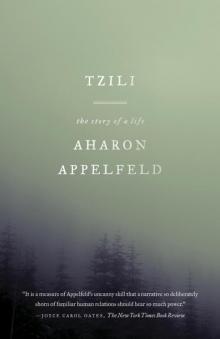 Tzili
Tzili The Conversion
The Conversion The Iron Tracks
The Iron Tracks All Whom I Have Loved
All Whom I Have Loved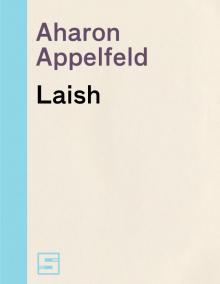 Laish
Laish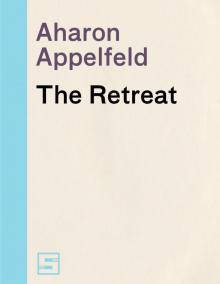 The Retreat
The Retreat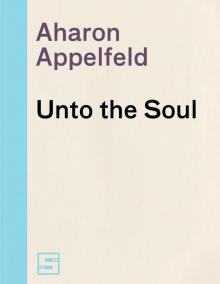 Unto the Soul
Unto the Soul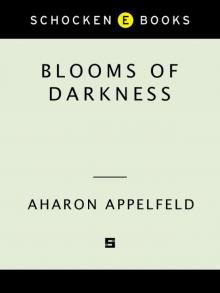 Blooms of Darkness
Blooms of Darkness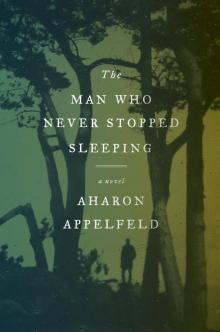 The Man Who Never Stopped Sleeping
The Man Who Never Stopped Sleeping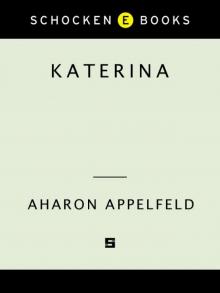 Katerina
Katerina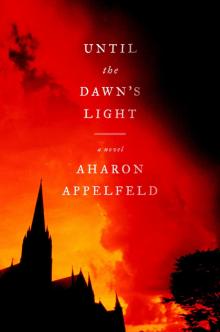 Until the Dawn's Light
Until the Dawn's Light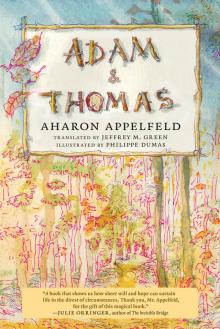 Adam and Thomas
Adam and Thomas Suddenly, Love
Suddenly, Love